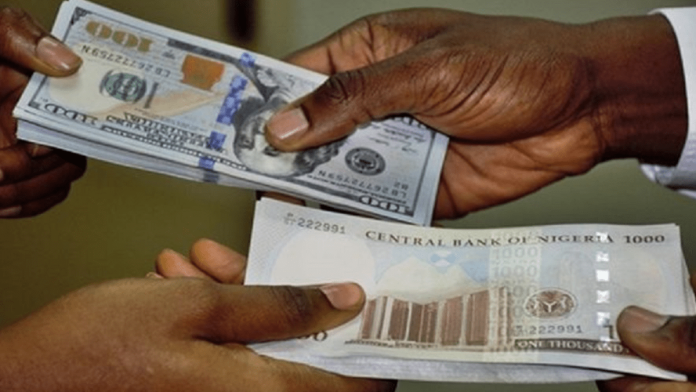Economics expert, Dr. Muda Yusuf, has lauded the unification of exchange rate, describing the move as a pricing mechanism and not a devaluation policy.
According to him, the new policy regime is a pricing mechanism that reflects the demand and supply fundamentals in the foreign exchange (FX) market.
President Bola Tinubu in his inaugural speech on May 29 had declared his government’s decision to unify the exchange rate, which is a departure from the multiple exchange rate system that was in place during the previous administration.
Sequel to this, the Central Bank of Nigeria on Wednesday announced the unification of all segments of the foreign exchange market, collapsing all FX windows into the investors and exporters (I&E) window.
This according to the apex bank was part of a series of immediate changes to operations in the Nigerian FX market, in a bid to improve liquidity and stability.
Dr. Yusuf who is the Chief Executive Officer of the Centre for the Promotion of Private Enterprise (CPPE) has welcomed the bold step taken by the Tinubu administration; saying the liberalization of the FX market would unlock the huge potentials for investment, jobs and capital flows while investors’ confidence would be positively impacted.
He, however, clarified that the new policy regime is not a devaluation policy, but a normalization of the foreign exchange policy regime and an adjustment of rate to reflect the fundamentals of demand and supply.
“It is a framework which allows for flexible rate adjustments as and when necessary. It is a model that is predictable, equitable, transparent and sustainable. It is a policy regime that would reduce uncertainty and inspire the confidence of investors. It would minimize discretion and arbitrage in the foreign exchange allocation mechanism.
“Rate unification does not imply that rates will be exactly the same in all segments of the market. The objective is to ensure that the differentials are very minimal, possibly between 5-10 percent,” he explained.
A unified exchange rate regime according to the economist, enhances liquidity in the foreign exchange market; reduces uncertainty in the foreign exchange market and enhances the confidence of investors; is more transparent as mechanism for forex allocation; minimizes discretion in the allocation of forex and reduces corruption vulnerabilities and reduces opportunities for round tripping and other sharp practices.
He added that the unified exchange rate regime would increase disclosures with respect to export proceeds and compliance with non-oil export declarations, especially the non-oil export documentation (NXP) as well as boost government revenue by a minimum of N4trillion through additional remittance of exchange rate surplus to the federation account by the CBN among others.
On the other hand, Dr. Yusuf, the former Director General of the Lagos Chamber of Commerce and Industry (LCCI) described the erstwhile foreign exchange policy regime as a fixed exchange rate regime that created distortions and negative outcomes.
“In the short term, we expect a depreciation of the currency in the official window because of the huge demand backlog. But as the market conditions normalizes and moves towards equilibrium, the rate would moderate. We also expect the new policy regime to boost inflows and strengthen the supply side amidst elevated investors’ confidence.
“The component of forex demand driven by arbitrage, rent seekers, speculators and other economic parasites would also fizzle out, thus restoring stability to the forex market,” he said, urging, CBN to position itself for periodic intervention in the forex market, as and when necessary, to stabilize the exchange rate and prevent volatility.


